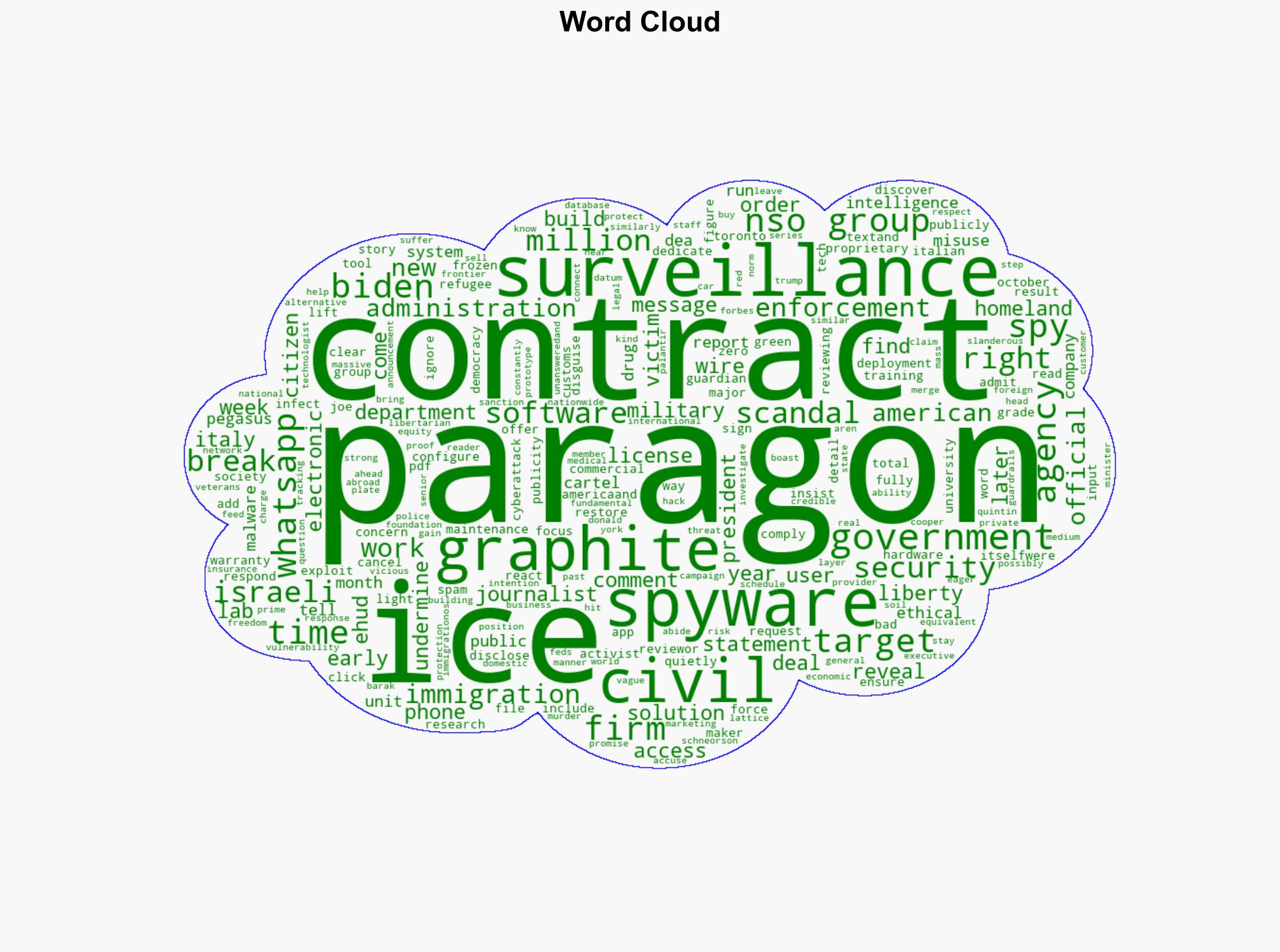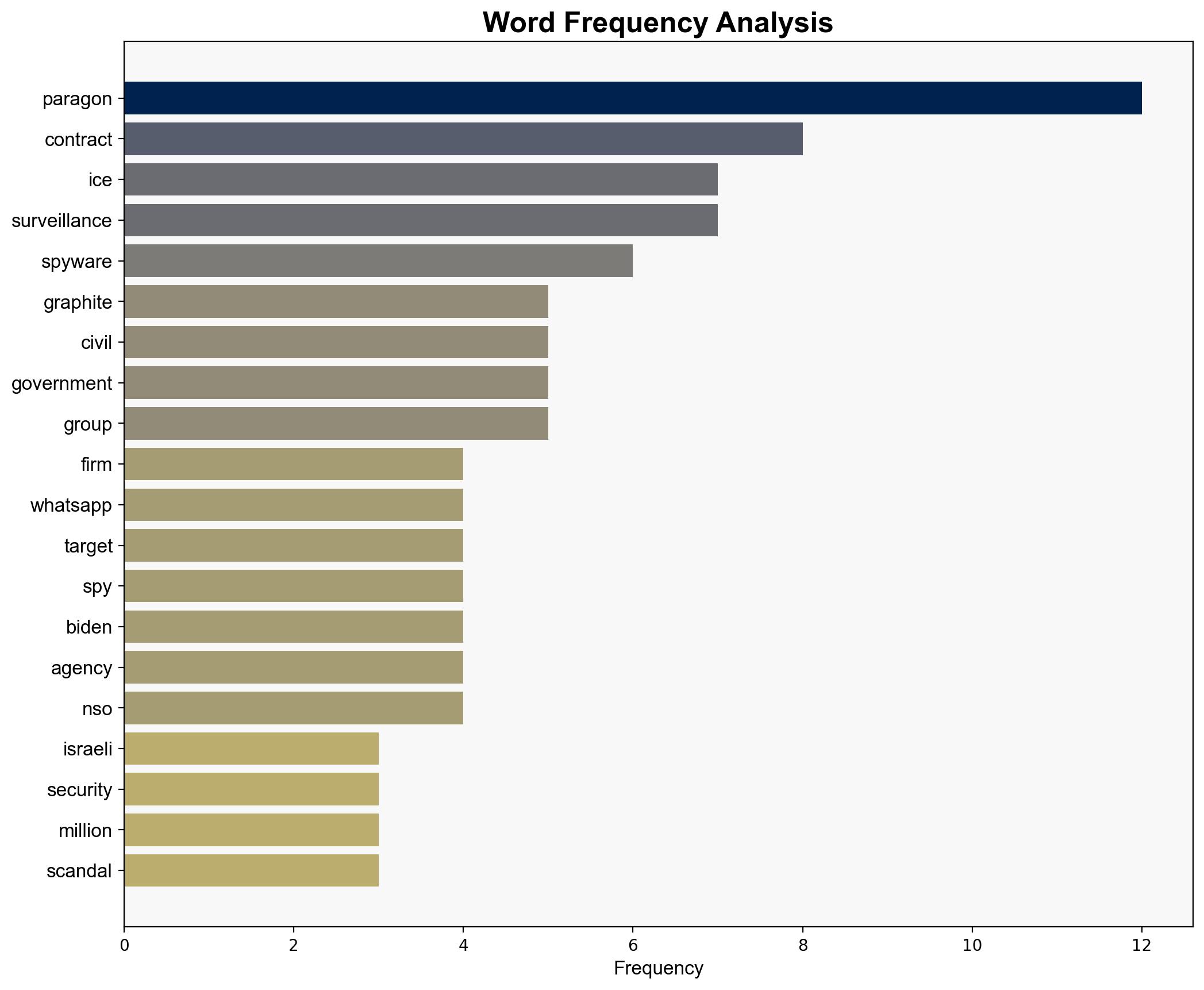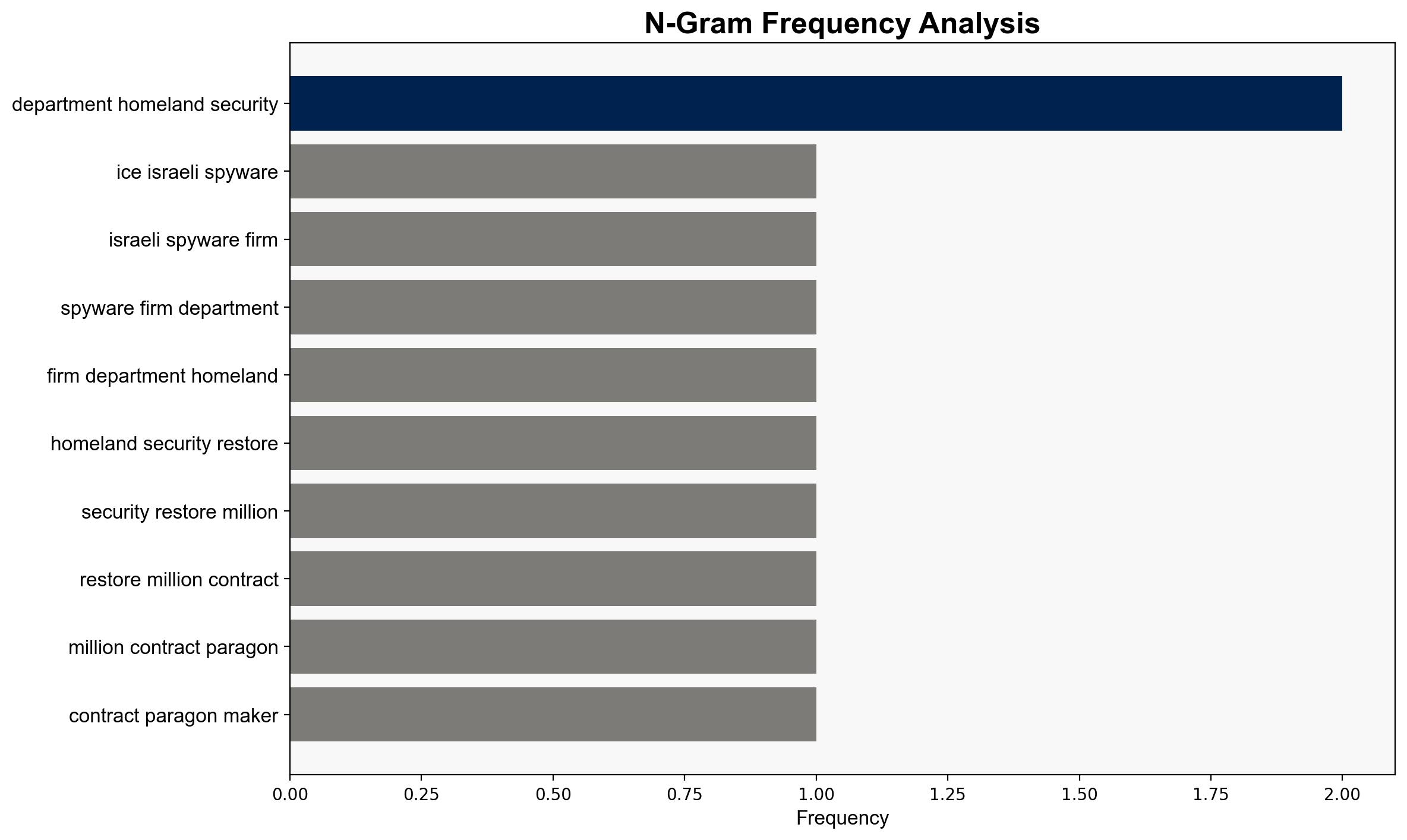What Is ICE Doing With This Israeli Spyware Firm – Reason
Published on: 2025-09-08
Intelligence Report: What Is ICE Doing With This Israeli Spyware Firm – Reason
1. BLUF (Bottom Line Up Front)
The most supported hypothesis is that ICE’s engagement with Paragon is primarily driven by a strategic need to enhance surveillance capabilities against international drug cartels, with a moderate confidence level. However, this poses significant risks to civil liberties and privacy. It is recommended that oversight mechanisms be strengthened to ensure compliance with legal standards and protect against misuse.
2. Competing Hypotheses
1. **Hypothesis A**: ICE is utilizing Paragon’s spyware to enhance its capabilities in targeting international drug cartels, focusing on operations outside the U.S. This aligns with the DEA’s reported use of similar technologies for foreign operations.
2. **Hypothesis B**: ICE’s engagement with Paragon is a precursor to broader domestic surveillance initiatives, potentially infringing on civil liberties within the U.S. This is suggested by ICE’s access to extensive domestic data networks and the potential for misuse highlighted by civil rights groups.
Using ACH 2.0, Hypothesis A is better supported due to the alignment with known DEA operations and the strategic focus on international threats. Hypothesis B, while plausible, lacks direct evidence of domestic misuse at this stage.
3. Key Assumptions and Red Flags
– **Assumptions**: It is assumed that ICE’s primary focus is international rather than domestic surveillance. Another assumption is that Paragon’s technology will be used within legal frameworks.
– **Red Flags**: The lack of transparency in the contract details and the sudden lifting of the work order raise concerns. The history of similar technologies being misused by other entities is a significant red flag.
– **Blind Spots**: Potential internal motivations within ICE or Paragon that are not publicly disclosed could influence the deployment of this technology.
4. Implications and Strategic Risks
– **Economic**: Potential sanctions or economic repercussions if misuse is detected could impact U.S.-Israel relations.
– **Cyber**: Increased use of spyware heightens the risk of cyber vulnerabilities and data breaches.
– **Geopolitical**: The use of foreign-developed spyware by U.S. agencies could strain international relations, especially if misuse is reported.
– **Psychological**: Public trust in government agencies may erode if surveillance overreach is perceived.
5. Recommendations and Outlook
- Implement stringent oversight and transparency measures to ensure compliance with civil liberties.
- Conduct regular audits and reviews of the technology’s use and impact.
- Develop contingency plans for potential backlash or international diplomatic issues.
- **Scenario Projections**:
– **Best Case**: Enhanced international drug interdiction with no civil liberties violations.
– **Worst Case**: Significant civil liberties breaches leading to public outcry and legal challenges.
– **Most Likely**: Initial focus on international targets with gradual domestic scrutiny and oversight challenges.
6. Key Individuals and Entities
– Ehud Barak
– Ehud Schneorson
– Paragon
– Immigration and Customs Enforcement (ICE)
– Drug Enforcement Agency (DEA)
7. Thematic Tags
national security threats, cybersecurity, counter-terrorism, regional focus





